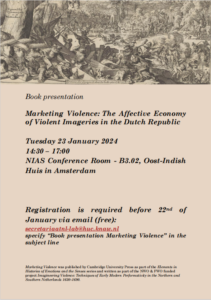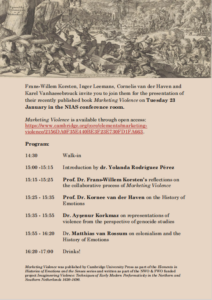Dr. Carme Font-Paz, Associate Professor of English Literature at Universitat Autònoma de Barcelona and director of WINK (Women’s Invisible Ink), is giving a lecture where she’ll be presenting the WINK project and her paper on ‘Intellectual Freedom in Early Modern Women’s Spiritual Writings: Practice, Methods, and Identities’.
April 15, 2024 at 11:30
Blandijn Lokaal 1.14
Contact: Elizabeth.Amann@UGent.be
The essence and manifestation of God’s love has been a major concern for men and women of faith over the centuries, and the object of mystical, fictional and analytical approaches to understanding the relationship between human and divine nature. This presentation will briefly examine the methodological challenges posed by narratives of faith and grace that seek to represent subjective reality as an experience of universal truth.
By paying special attention to four seventeenth-century women writers from different Christian backgrounds, we shall see in what ways their notion of intellectual freedom was constructed and invoked as the primary reason for writing and speaking in public against pastoral misconduct, social ills and domestic abuse within their congregations and communities of faith. Their arguments point at their own freedom of conscience, as well as the “hypocrisie” and superficiality of the alleged “liberty of conscience and freedom” of their own communities. They claim to be intellectually freer in their obedience to God.
This paper will bring to light Maria Jesus de Ágreda manuscript Leyes de la esposa (1637) for the first time, Arcangela Tarabotti’s La semplicità ingannata (1654), Susanna Parr’s Apologie against the Elders (1659), and Anne Wentworth’s A Vindication (1670). We will look at the discourse of divine love and personal conscience as a common feature of female spirituality and intellectuality within a European context, markedly influenced by Teresa de Ávila’s program for mental prayer. We shall discuss the relationship between literary genre and theological tradition, the limits of reason and the imagination as sources of knowledge, and the faint borderlines between obedience and freedom of conscience as paths for intellectual inquiry.
Dr. Carme Font-Paz is Associate Professor of English Literature at Universitat Autònoma de Barcelona. She is also an ICREA Academia fellow and director of the European ERC Starting Grant project WINK “Women’s Invisible Ink: Trans-Genre Writing and the Gendering of Intellectual Value in Early Modernity”. A specialist in prophetic genres and early modern women’s writing, her latest books are Women’s Prophetic Writings in Seventeenth-Century Britain (Routledge, 2017) and, with Nina Geerdink, Economic Imperatives for Women’s Writing in Early Modern Europe (Brill, 2018). She is now preparing her forthcoming monograph Women Writing on Social Change in Early Modern Europe (Brepols).









You must be logged in to post a comment.